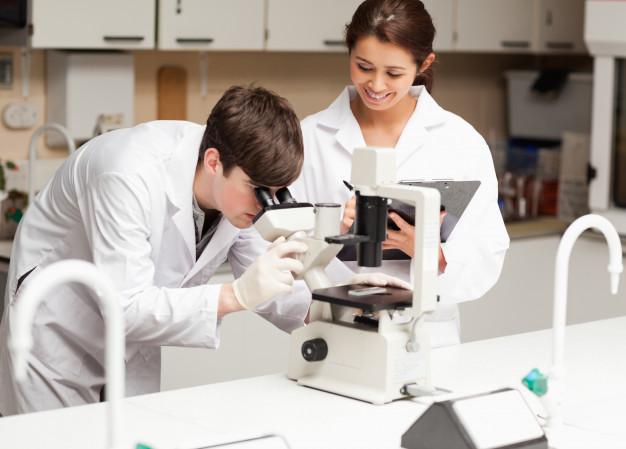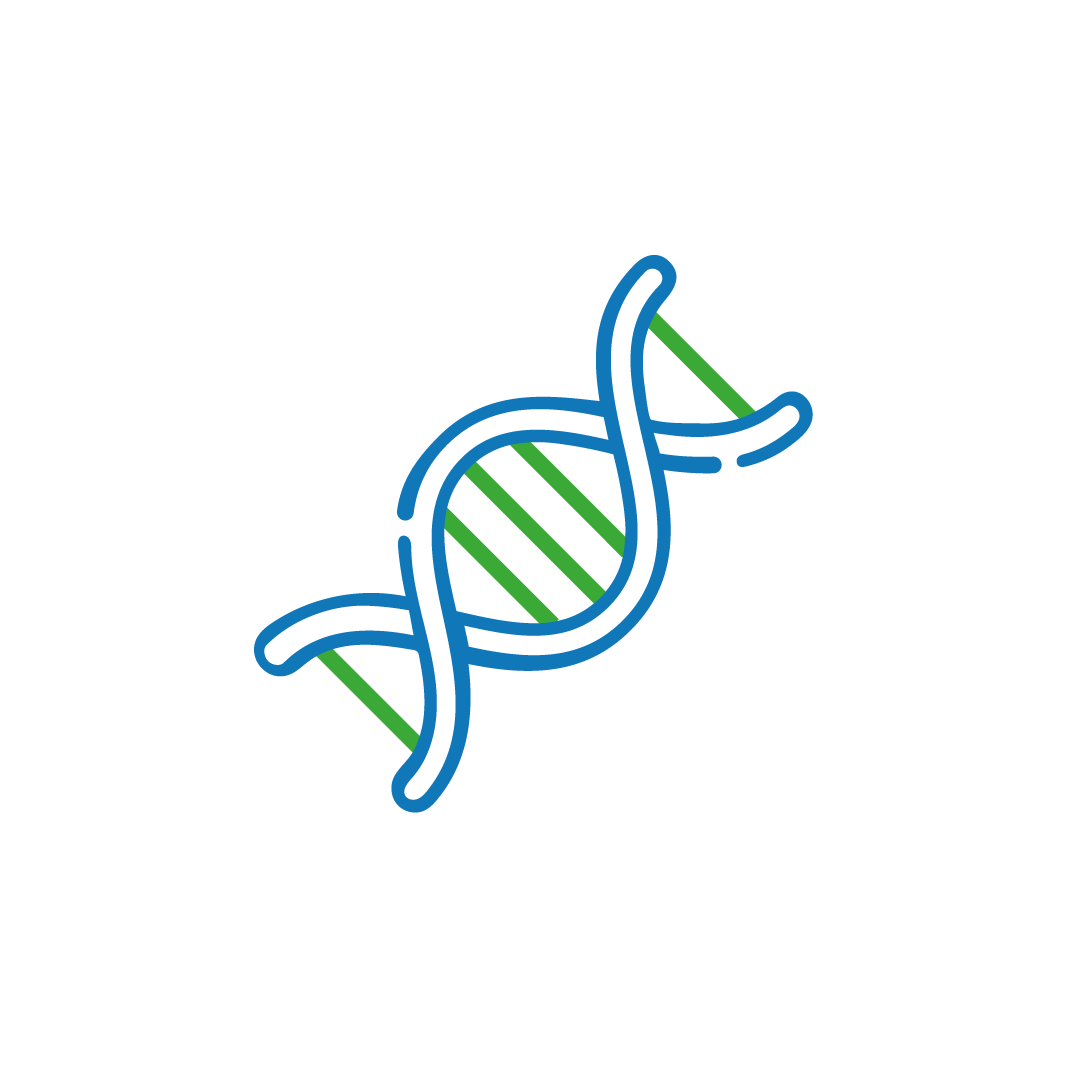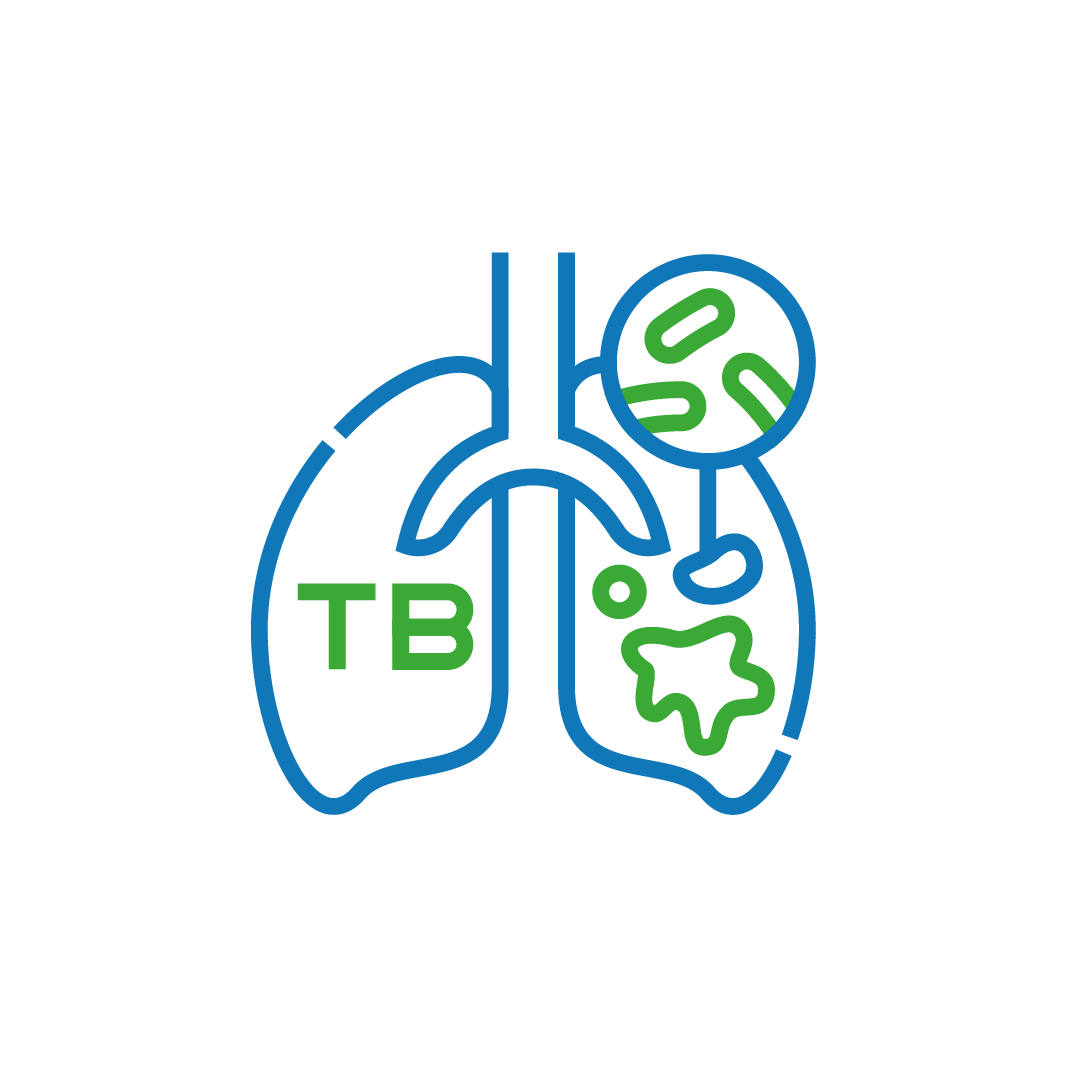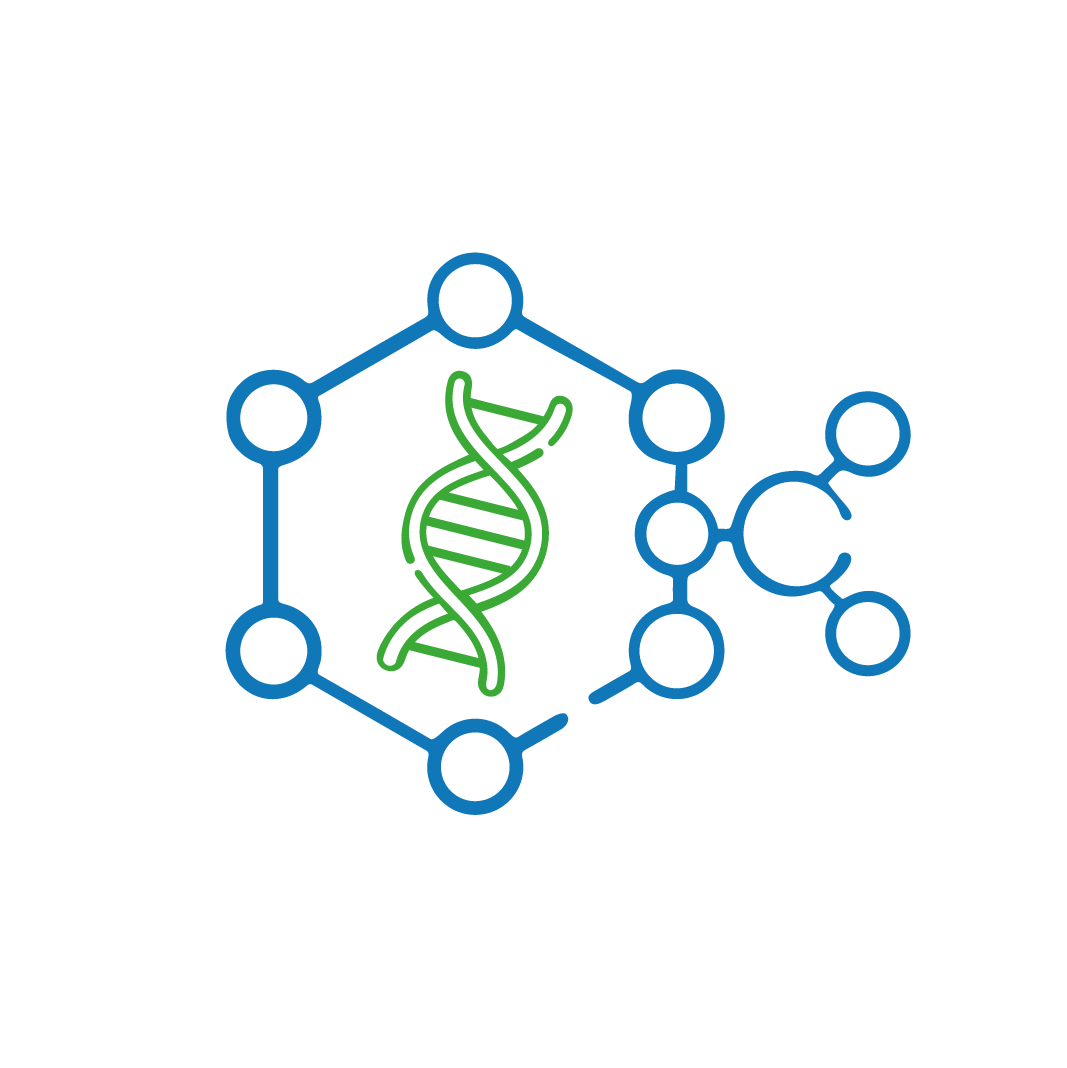علم الأحياء الدقيقة والأمراض المعدية

يختص قسم علم الأحياء الدقيقة والأمراض المعدية فى تشخيص مجموعة واسعة من الأمراض المعدية مثل البكتريا والفطريات والديدان والفيروسات حيث أننا نراقب بإستمرار وتطوير منهجياتنا من أجل توفير نتائج متفوقة عندما يتعلق الأمر بالكشف وتحديد الأنواع والثقافة وإختبار الحساسية.
يبدا الإختبار الصحيح بسحب العينة بطريقة سليمة و تأتى معظم العينات من أجزاء عدة بالجسم والتى يتم إرسالها للإختبار حيث نؤمن أن عينة سليمة تؤدى إلى تشخيص دقيقوهذا ما يحثنا على توظيف فريق بحث محترف ودقيق لنقل العينات.
على الرغم من ألالاف العينات التى نستقبلها بشكل يومى إلى أننا نعتنى بالنتائج الإيجابية عن طريق الأجهزة التكنولوجيا الحديثة خصوصآ لمزارع الدموهذا يضمن أن لا يتم فقد عينات ويتم نقل العينات الإيجابية بشكل سريع حتى يتم التعامل معها بشكل مثالى
بالإضافةتحتاج المناعة الميكروبية الجديدةإلى طرق علاج حديثة وسريعة ولهذا السبب تبتكر مختبرات مايكرو هيلث نظام لمراقبة وعدم إنتشار العدوى
فى الوقت الحالى نتقدم لزيادة خبراتنا فى شتى المجالات العديدة والجزيئية لعمل التحاليل الدورية والتعرف على مسببات الأمراض
- قسم تحاليل الخصوبة وما قبل الولادة

The Fertility and Prenatal Screening Department at Micro Health Laboratories focuses on testing reproductive function as well as screening for a variety of disorders or abnormalities in unborn babies.
PFertility testing is not exclusive to females since it is known that 50% of infertility cases can be attributed to problems related to male reproductive function. Therefore, fertility testing involves both male and female analysis of reproductive function but the approach for each differs. At MHL, we have multiple partnerships with various reproductive clinics and facilities which help us improve further our fertility testing services.
Prenatal screening tests are performed throughout the duration of pregnancy. They are composed of a comprehensive collection of procedures used to determine the likely occurrence of specific birth defects.
A screening test will only provide pregnant mothers with the risk or probability of a particular condition from existing. In most cases, when screening tests are found to be positive, confirmatory diagnostic tests are usually carried out in order to provide a definitive diagnosis.
The tests for each patient will greatly depend on the recommendation of qualified healthcare providers. Many factors have to be taken into consideration to arrive at a screening test package. Women who are at risk of developing certain diseases will have to undergo additional testing as necessary.
- قسم المناعة والحساسية

The Department of Immunology and Allergy provides cutting-edge technology for the most common allergic conditions such as food and drug allergy, atopic dermatitis, asthma, allergic rhinitis, hypersensitivity reactions, and others.
The department continues to collaborate with many Pediatric specialists for better patient medical intervention. In most cases, allergic diseases are diagnosed through a combination of the patient's detailed history and the results of test panels on allergy.
Allergy results from the release of histamine and mediators brought about by the immune response of the body to allergens that may come from the environment. These exposures, when remain uncontrolled may lead to anaphylaxis which is a severe and life-threatening condition.Test panels for allergies are especially useful in the diagnosis of allergic diseases in many ways. Patients who do not have an idea of the nature of their allergic reaction may undergo testing that will help them identify the allergens causing the reaction. Likewise, tests that detect mediators of allergic reactions in the body can also be done and may prove to be valuable in the management of allergies.
- قسم تحاليل الدم ودراسات التخثر

The Department of Hematology and Coagulation Studies delivers full-service laboratory testing of blood, bone marrow, and other body fluids and tissues. Our department covers all aspects of both routine and reference testing for various diseases such as anemia, leukemia, proliferative disorders, coagulation, and other related disorders.
Most issues related to disorders of the blood usually arise from problems with cell count, cell morphology, and cell function. Complications resulting from abnormalities in cell counts usually include common disorders such as anemia and leukemia. Furthermore, defects in cell morphology and function attribute to a multitude of disorders which can be useful to provide a definitive diagnosis to the patient.
People with bleeding disorders have a strong tendency to form bruises easily or sometimes, it takes a longer time for them to control bleeding episodes. As such, the danger of having uncontrolled bleeding disorders may result in unnecessary loss of blood in cases of injury. Your body has a complex mechanism of cells (platelets) and proteins (coagulation factors) which interact together to prevent blood loss and to give time for your injuries to heal.
With the state-of-the-art equipment and updated technology we employ in Hematology and Coagulation, testing for these diseases had never been easier. We use extensive quality control mechanisms in performing assays, validating methods, and implementing changes which are very important in producing valid and reliable results.
Hematology and Coagulation Department offers services on the following areas:
1) Routine hematology
2) Routine and specialized coagulation
3) Bone marrow and peripheral smear examination
4) Body fluids cell count and differential
5) Specialized testing for rare blood disorders - قسم التحاليل الجينية

Cytogenetics is the study of chromosome morphology, structure, pathology, function, and behavior and thereby its role in human disease and heredity.
The Cytogenetics Department at Micro Health Reference Laboratory investigates the whole genome for loss or gain of chromosomal material and structural rearrangements of the chromosomes with the help of Karyotyping or FISH analysis.
Our constitutional service spans prenatal diagnosis, neonatal and pediatric investigations for recognized syndromes, investigation of developmental delay and learning difficulties, multiple congenital abnormalities or dysmorphism as well as investigating infertility and reproductive problems in adults.
Our oncology service includes chromosomal investigations for hematological malignancy and a range of other solid tumors. Cytogenetics services help to provide an accurate diagnosis and assist with clinical management and treatment selection. Fluorescence in situ hybridization (FISH) analysis, including assays for a broad panel of hematologic probes and HER2 amplification in breast cancer, is also offered.
The service will provide an interpretation of the clinical significance of their findings including an assessment of the implications for other family members. The service will also offer advice to professionals from other clinical disciplines as to the availability and appropriateness of cytogenetic testing.
OUR SERVICES
Karyotyping
Karyotyping is a microscopic analysis of the chromosomes, and its arrangement and numbering according to the International System for Human Cytogenetic Nomenclature (ISCN). This test can detect loss or gain of material in any region of any chromosome as well as both balanced and unbalanced structural rearrangements such as translocations and inversions. As this test examines the chromosomes microscopically, the level of detail is limited by the resolution of the microscope and imbalances of ~ 5 Mb or greater can be detected.
FISH
The term fluorescence in situ hybridization (FISH) represents the methodology to detect specific nucleotide sequences by using DNA probes labeled with a fluorochrome that will hybridize with denatured chromatin (DNA) on a microscope slide. This technique helps the detection of specific gene sequences on the chromosome, or either its presence or absence, which is the central concern of cytogenetic technique in diagnosing as well as enumerating a genetic disorder or abnormalities.By using this technique, specific cytogenetic abnormalities, as well as a copy of aberrations numbers, can be enumerated and sketched. For example, chromosomal microdeletion, amplification, and subsequently, translocation can easily be detected. The combination of cytogenetic, FISH and molecular analyses provides a powerful approach for diagnosing and subclassifying malignant diseases into clinically and biologically relevant subgroups, In selecting appropriate therapy, and in monitoring the efficacy of therapeutic regimens.
- علم الأحياء الدقيقة والأمراض المعدية

The Microbiology and Infectious Diseases Department specializes in the diagnosis of infectious diseases covering areas in bacteriology, mycology, parasitology, and virology. We are constantly monitoring and developing our methodologies in order to provide superior outcomes when it comes to detection, species identification, culture, and sensitivity testing.
The testing procedure usually starts with the collection of appropriate specimens. These specimens may come from a variety of sources which will be sent to us for appropriate testing. We always believe that a good specimen will produce better chances for a definitive diagnosis. That is why we ensure that we employ a carefully structured pre–analytical system for sample collection including specimen transport.
With thousands of samples we receive and process each day, each sample is well monitored for positive growth using automated machinery, particularly for blood culture testing. This ensures that no sample will be missed and every further testing on positive samples will be carried out immediately so that necessary treatment may be administered as soon as possible.
Furthermore, the continuously rising issue of microbial resistance reflects the greater need to develop novel treatment procedures. That is why, MHL keeps track of clinically significant isolates and developed a monitoring system to prevent and control the spread of resistant infections.
At present, we are moving forward towards improving and evolving our expertise in all areas of conventional and molecular microbiology for routine application and processing of samples for better identification of infectious agents.
- تحاليل الدرن والبكتريا الدقيقة

Tuberculosis & Fastidious Microbiology is a specialized area in Micro Health Laboratories that focuses on the detection, identification, culture, and sensitivity of Tuberculosis causing bacteria and other fastidious microorganisms which are not easily cultured using conventional techniques.
Fastidious organisms are those organisms that require complex nutritional requirements in their culture media. Simply put, these organisms will only grow when certain specific nutrients and environmental conditions are met.
We have created an environment for these types of microorganisms to enable them to be processed for testing. The tests we perform are dynamic and employ methods for the initial identification of microorganisms while waiting for a more definitive diagnosis through culture techniques. Fastidious microorganisms usually require longer incubation periods while presumptive diagnosis may prove to be of clinical value in the early management of disease conditions.
- قسم الأحياء الجزيئية وتفاعل البولميرز

The Department of Molecular Biology & PCR specializes in the performance of specialized techniques primarily for providing a faster, more definitive detection and identification of causative agents for various diseases. Polymerase Chain Reaction (PCR) technique is the basis of most techniques employed in this department.
The diagnosis of causative agents had never been this specific since the introduction of molecular techniques in the diagnostic industry. For many years, standard culture techniques remain to be the cornerstone of microbial detection however, there are various situations where there is a need to consider molecular approaches for testing when efforts to culture bacteria remain in vain or take too long. This will reflect a better prognosis for patients since an appropriate treatment regimen may be provided at the earliest possible time.
Molecular diagnostic techniques play a significant role in clinical microbiology but their application does not completely eradicate the need for conventional techniques such as culture and sensitivity. Such assays can be integrated into our routine analyses and will help enhance laboratory diagnostic efficiency.
- علم أمراض الأنسجة الحيوية

The Histocytopathology Department provides comprehensive cell and tissue diagnostic services to the clients of Microhealth Laboratories. The team is led by a certified Pathologist and composed of highly qualified and skilled histotechnologists who all aim to deliver the best laboratory services using cutting-edge methodology and instrumentation in tissue processing.
The department deals with the processing of tissue samples for study under the microscope by qualified healthcare practitioners. These tissue samples are collected either during surgery or during a variety of tissue collection procedures and are subsequently processed to prepare slides that are of high quality.
Samples sent for tissue processing are treated and analyzed using the appropriate techniques and instrumentation depending on the nature of the sample submitted and combined clinical impression by the physician handling the patient and the Pathologist. Tissues are usually classified according to their sizes and processed accordingly based on established standards on processing tissue samples. Sometimes, when a rapid diagnosis should be made, a frozen section is usually performed.
The team is constantly trying to develop new ways and methods to perfect the art of tissue processing. We will continue to produce high-quality slides while we continue to optimize and reduce the resources needed in our processes.
- قسم الكيمياء المناعية و أمراض الأورام

The Department of Immunohistochemistry & Cancer Studies is a specialized working unit performing over 200 immunochemical techniques needed in the diagnosis and management of a wide range of diseases, particularly cancer.
Immunohistochemical studies are useful when selectively determining antigens present in cells of a tissue section using the basic principle of antigen – antibody binding and can be visualized using staining techniques. Routine methods in the histopathology section may not provide enough details to arrive at a diagnosis.
Immunohistochemistry can be employed to investigate the earliest changes in transformed tissues, identifying cellular changes not normally visible with routine techniques. The concept is very useful in diagnosing abnormal cells which are characteristic of cancer processes. Specific molecular mechanisms are studied which enables specialists to provide a much more definitive diagnosis.
Our tests can also be applied in the context of the performance of research studies and experimentations. Our facilities are open for tie-ups should you require the use of necessary instrumentation and methods in your research.
- تحاليل فيش وتحاليل التدفق الخلوى

The FISH & Flow cytometry department specializes in the study of body elements and structures both at the cellular and molecular levels. This department employs both methods in determining defects in cells and its processes which may reflect clinically significant disease conditions.
We utilize molecular techniques used to locate the positions of specific DNA sequences on chromosomes. Its application in the clinical setting is focused on the diagnosis of various chromosomal abnormalities, including deletions, duplications, and translocations.
FISH is a highly specific and sensitive technique. It can be applied in many research activities such as in genetic mapping or in the discovery of cancer-causing genes or genetic alterations that contribute to the development of cancer. This technique is based on the principle of DNA probes' attachment to specific target sequences of sample DNA. In order to confirm the presence or absence of a particular genetic abnormality, the DNA probes are tagged with fluorescent reporter molecules which can be visualized with the help of fluorescence microscopy.
Our simple, yet effective techniques have paved the way for advancements in cellular studies and have been established as a potential diagnostic and become instrumental in the battle against cancer.
- أختبارات الكشف عن المخدرات والكحول

The Drug & Alcohol Testing Department mainly focuses on the performance of tests used to detect drugs and alcohol levels in the body. For whatever purpose we need to conduct these tests, we ensure to uphold our credibility in maintaining confidentiality and credibility in all aspects of testing.
Screening tests for drugs are usually qualitative in nature meaning, you will only get either a positive or negative result. Confirmatory testing on the other hand will allow quantification of analytes present in the sample which helps in determining the appropriate course of action for the patient.
Screening tests for the presence of drugs usually employ urine samples but sometimes, other samples may be required to be submitted for further testing. In most cases, positive samples in screening tests are usually tested further for confirmatory testing. Individuals who need to undergo drug testing may be asked to collect urine samples in a controlled environment so that they will not be able to tamper with samples before submission.
Confirmatory testing will provide a definitive result for drug testing. Sometimes, legally allowed substances may cross-react with test kits that target illegal substances thereby increasing the need for confirmatory testing. Methods employed in confirmatory testing usually require more sophisticated instrumentation and training for the staff.
We follow the strict implementation of protocols for drug and alcohol testing based on local and international laws concerning drug testing and ensure that the same protocol is carefully followed.
Micro Health Laboratories and the associated logo are the registered trademarks of Micro Health Laboratories. All third party marks and logos are the property of their respective owners | Designed & Developed By Xynosoft Solutions
